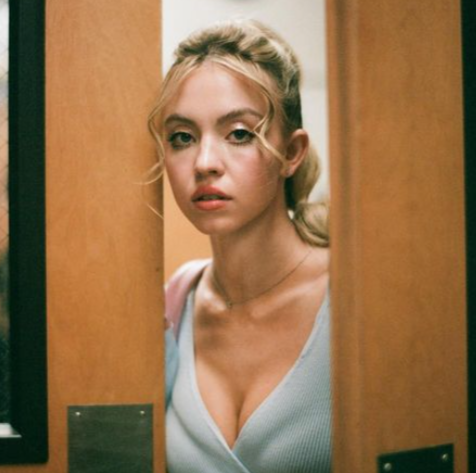Actor Sydney Sweeney recently shared an experience that many people resonated with. In an interview with the Sun, she discussed how people are quick to reduce her to her appearance and her nude scenes in HBO’s Euphoria. “I had boobs before other girls and I felt ostracised for it,” she said. Cassie, her character in the show, faces a very similar struggle.
“You have a character that goes through the scrutiny of being a sexualised person at school and then an audience that does the same thing,” Sweeney further added.
Within days, a barrage of ridicule and dismissive comments started coming the actor’s way on social media. Many people, especially men, could not imagine why a woman would feel ostracised for fitting into conventional beauty standards. But, as many women pointed out in the actor’s defence, it’s a lot more complicated than that. The shame attached to puberty is an excruciating hurdle for young women to overcome. During a time when they are already finding it difficult to come to terms with developing breasts and menstruating, they are sexualised, catcalled and harassed for changes they have no control over.
Women, from the time they reach consciousness, are shamed for simply existing so idk why it’s so hard for people to understand that a child developing breast earlier would lead to scrutiny or feelings of insecurity
— ☆ (@savspiria) March 18, 2023
“It’s painful, to be honest,” Radhika (20) shared. “For a long time, I remember feeling like my changing body was the only thing people could notice about me. I was already introverted in school but the stares and comments made me want to hide from everybody even more.”
This is something that nearly every non-male undergoing puberty experiences. And it comes consciously and unconsciously from all sources, even the closest family and friends. For those who grew up with the internet, it also comes from strangers online.
There’s no doubt that ‘pretty privilege’ exists. Physically attractive people are perceived as more worthy and treated better. But when it comes to young girls, it also plays a role in their objectification. The sexualisation of a child can never be a privilege. It has a serious impact on their self-esteem and how they view their bodies, leading to issues like body dysmorphia.
“My peers teasing me was a problem, yes, but I even felt ostracised by my teachers and so did many other girls in my class,” Sanya (19) said. “They don’t say it directly but instead make you feel like you have to behave, dress and talk a certain way after you hit puberty. It’s the little things. I remember teachers saying that wearing lip balm or not braiding my hair meant I “wanted attention” from boys.”
Conservative cultures and home and school environments make the problem even worse for young Indians. “It’s nice to see more schools teaching sex education now, but we didn’t have much of it growing up,” Divya (23) noted. “We weren’t taught enough about our own bodies! So we felt different and abnormal for developing earlier or later than our friends. If our parents and teachers were more open about these things, it would make it a lot easier for us to handle it.”
The online criticism that views Sydney Sweeney’s experience as a privilege is proof of the sexualisation of young girls. People also believe that doing nude scenes means she somehow “signed up” for being harassed. However, that takes away all agency from her. She chose to play a character, because, you know, it’s her job. But she didn’t choose bullying and dehumanising comments.
In a now-deleted nude selfie posted on her Instagram, You actor Victoria Pedretti recently shared her own experience of a famous celebrity making inappropriate comments about her. “On my bday last year a “well known” actor walked up to me and said “I’ve jacked off to you so many times”… I was shocked by the audacity.” She further makes the point that modesty does not protect her, or other women, from disrespect.
What both Sweeney and Pedretti have opened up about is a universal experience for people who have breasts or menstruate. And clothes, behaviour and attitudes have no bearing on it. It’s unfair scrutiny that we’ve come to believe is just a cruel “part of life” that we should get used to instead of speaking out against.





